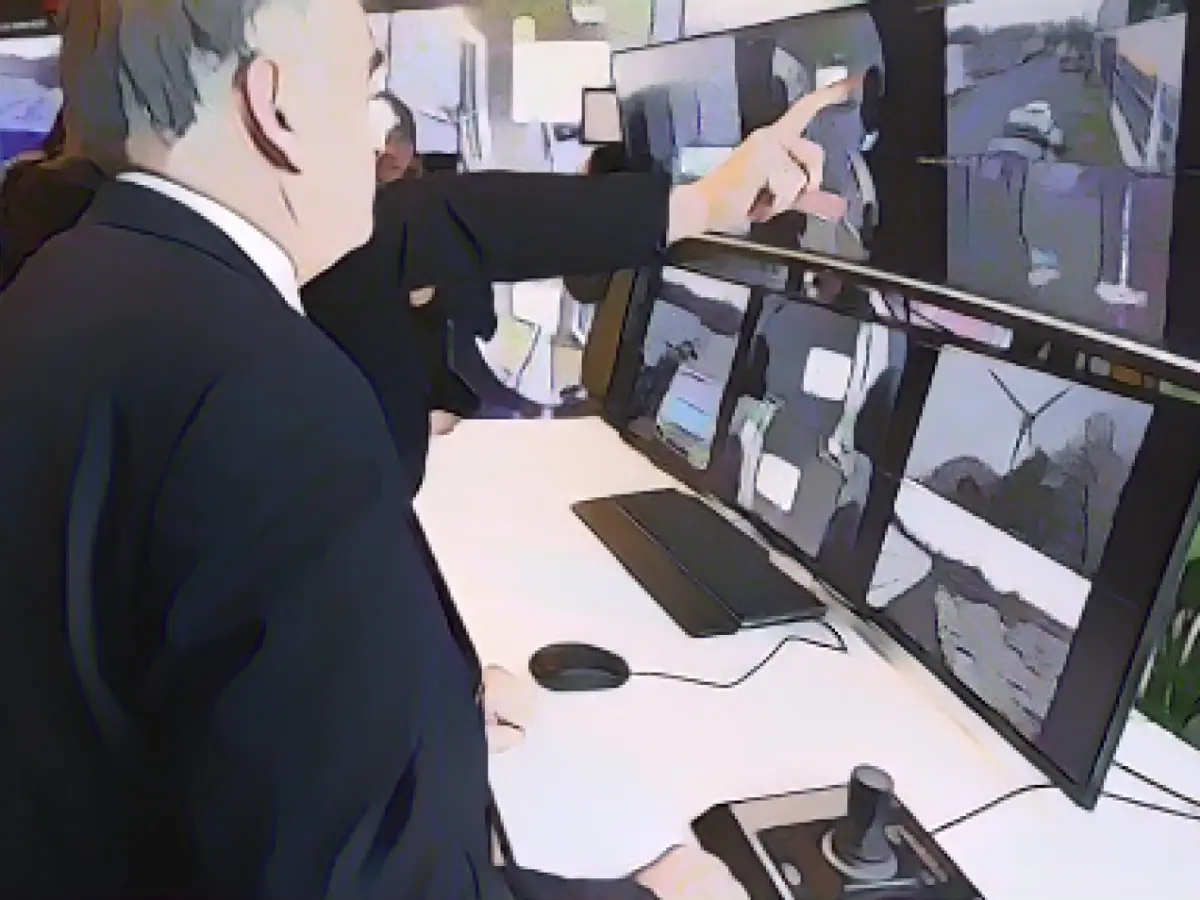In the future, the police in North Rhine-Westphalia, Germany, will have the power to keep an eye on crime-prone areas across the state through the aid of advanced mobile video technology. At a gathering in Duisburg on Wednesday, Interior Minister Herbert Reul (CDU) showcased a set of ten car trailers, each equipped with six cameras that can reach heights of up to five meters using extendable masts.
These new gadgets will complement the existing stationary video surveillance systems set up in some cities. According to Reul, these mobile systems will provide better operational assistance for the police and offer a more comprehensive view of the situation. The footage from these devices can only be accessed by the police and must adhere to the guidelines outlined in the Police Act.
The act itself outlines that video surveillance is legal for preventing criminal activities if there have been multiple incidents at the location or if there are hints of conspiracies to commit serious offenses. These recordings can only be kept for a maximum of 14 days if they are not required for the investigation of criminal cases.
Criminal Prevention and Investigation
The mobile video surveillance systems have the potential to greatly enhance the ability of law enforcement to prevent and investigate crimes. Real-time monitoring makes it possible for authorities to intervene promptly, and the footage collected acts as vital evidence in investigations. Footage can be used to help piece together events and identify suspects more effectively.
Public Safety and Community Trust
Additionally, these mobile systems can contribute to improved public safety, as they may help reduce the number of assaults on police officers in high-crime areas. Here, body cameras are often utilized for weekend patrols or as part of pilot projects to assess their effectiveness in reducing violations against law enforcement personnel.
Furthermore, the use of body cameras can contribute to strengthening the relationship between law enforcement and the community by fostering greater transparency. A clear record of interactions between the police and civilians can assist in resolving disputes and improving overall trust within the community.
Regulations Governing Use
When implementing mobile video surveillance systems, it's crucial to abide by specific regulations to preserve privacy and data protection. In France, for example, the National Committee on Information and Freedoms (CNIL) established a legal framework to ensure that these systems are used responsibly. Separate legislation has also been put in place for various law enforcement agencies, such as national police, gendarmerie, and municipal police.
In areas that prioritize security, police and gendarmerie may be required to record each identity check, though the rule for automatic recording was eventually rescinded due to technical issues. In public spaces, individuals who may be recorded must be notified through prominent signage. Personal data collected through video surveillance systems must also comply with stringent data protection regulations, such as the EU's General Data Protection Regulation (GDPR).








